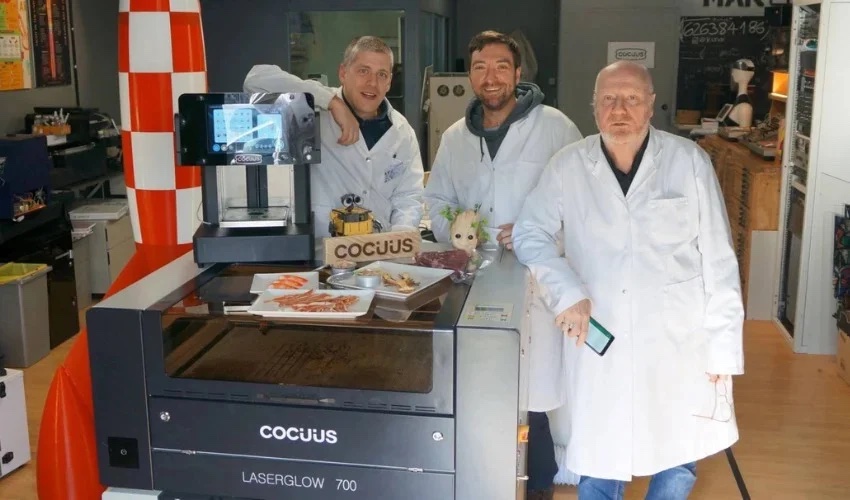Sustainable and Nutritious 3D-Printed Foods Made by Cargill and Cocuus

Have you ever eaten any kind of 3D printed food or at least thought about trying it? Nowadays, it seems like anything is possible with the help of additive manufacturing, and more and more industries are turning to it. According to the Food and Agriculture Organization (FAO), food production needs to increase by 70% by 2050 in order to feed the future population of 9.1 billion people and produce 200 million tons of meat. Thanks to a new collaboration between Cargill and Cocuus, it is possible to 3D print foods like bacon, or salmon, in a sustainable and nutritious way. The idea is not exactly new, and many companies in the food industry are already able to print a broad variety of foods.
The newly discovered benefits of additive manufacturing in the food industry quickly attracted companies and investors on a national and international level. U.S.-based company Cargill, for example, provides foods, financial services, and agricultural products and is working towards a way to feed the world responsibly by reducing environmental impact and improving life in different communities.

A 3D-printed T-bone steak. (photo credits: Navarre Capital)
Recently, Cargill became a shareholder of Cocuus, a Spanish technology company that specializes in developing industrial solutions for the production of plant- or cell-based animal protein analogs. Following a €2.5 million funding round, the Spanish company will use the money to print salmon, bacon, or steaks! More and more consumers want a more balanced diet free of additives, processed foods, preservatives, sugar and fats, which is exactly what 3D food printing can achieve.
Patxi Larumbe, CEO and founder of Cocuus, said, “We are very proud to have attracted the interest of international investors with this round of financing. Thanks to this capital injection we will be able to bring our technology within reach of corporations that want to print proteins on an industrial scale”.

3D printed bacon made by Cocuus
The Future of 3D Printing in the Food Industry
The use of 3D printing technologies to produce analog foods (foods in which the milk fat has been replaced in whole or in part by vegetable fats or oils) is an important and fundamental part of the project. This Navarra-based company has succeeded, thanks to 3D printing, bioprinting, and robotics, in producing foods with animal protein on a plant or cellular basis, creating much more sustainable and nutritious alternatives.
3D printing in the food industry today makes it possible to prepare dishes according to the individual demands of consumers, whether in terms of the amount of proteins, carbohydrates or fats. Cocuus, currently employing a staff of 20 people, has attracted the attention of numerous companies that are interested in using additive manufacturing technologies to produce food. The goal of the company is to become the 3D printed food company of the future! To find out more about the company, visit its website HERE.
What are your thoughts on 3D-printed foods? Let us know in a comment below or on our LinkedIn, Facebook, and Twitter pages! Don’t forget to sign up for our free weekly Newsletter here, the latest 3D printing news straight to your inbox! You can also find all our videos on our YouTube channel.






